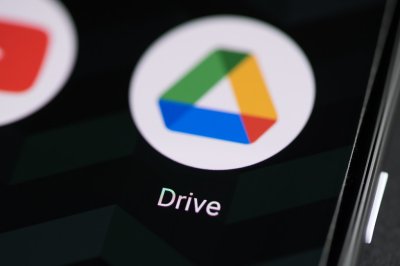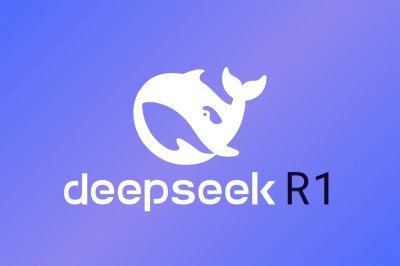Beyond the Mic: Instagram Denies Eavesdropping, But AI's Predictive Power Redefines Digital Privacy
@devadigax01 Oct 2025

Adam Mosseri, the influential head of Instagram, recently addressed a persistent and unnerving rumor that has plagued the platform for years: the accusation that Instagram secretly uses users' device microphones to listen to their conversations, subsequently serving highly targeted advertisements. Mosseri vehemently denied these claims, stating unequivocally that the company is not engaging in such surreptitious audio surveillance. However, his statement, particularly when juxtaposed with the rapid advancements in Artificial Intelligence (AI) and data analytics, inadvertently highlights a far more sophisticated and pervasive method of user profiling that renders microphone access largely redundant.
The concern over "listening" apps isn't new; countless users have reported instances where they discussed a specific product or topic in real life, only to find an advertisement for that very item appearing in their Instagram feed minutes or hours later. These coincidences, while often explained away by algorithmic serendipity or confirmation bias, fuel a deep-seated mistrust among the user base. Mosseri's denial aims to assuage these fears, reaffirming the company's stance that it does not use your microphone for advertising purposes. "We don't do it," he stated, clarifying that any perceived correlation is simply a consequence of the vast amount of other data Instagram already collects.
This is where the AI dimension becomes critical, fundamentally reshaping the conversation around digital privacy. The raw truth is, with the immense computational power of modern AI and the colossal datasets at their disposal, tech giants like Meta (Instagram's parent company) simply *don't need* to listen through your microphone. The sophistication of their AI-driven predictive analytics has evolved to a point where user behavior, preferences, and even unspoken desires can be inferred with astonishing accuracy from a myriad of other data points.
Consider the sheer volume and variety of information Instagram and its ecosystem already gathers. Every like, comment, share, save, and scroll is a data point. The time you spend on a particular type of content, the profiles you visit, the hashtags you follow, your direct messages, the stories you watch, and the Reels you engage with – all contribute to an intricate digital fingerprint. Beyond in-app activity, Instagram can access your device information, location data (if permitted), network activity, and even data from other Meta platforms like Facebook and WhatsApp, creating a panoramic view of your digital life. Furthermore, through tracking pixels and SDKs, Meta can connect your Instagram activity with your browsing habits on third-party websites and apps.
This deluge of data is then fed into highly advanced AI and Machine Learning (ML) algorithms. These algorithms are not just looking for simple correlations; they are designed to identify complex patterns, predict future behavior, and construct incredibly detailed user profiles. Natural Language Processing (NLP) analyzes text in your captions, comments, and DMs to understand your interests, sentiment, and even your emotional state. Computer Vision algorithms process the images and videos you post and interact with, identifying objects, scenes, brands, and even people, further enriching your profile.
The power of inference is the game-changer. An AI system doesn't need to hear you discuss a new car if it can infer you're in the market based on a confluence of factors: you've recently visited several car dealership websites (tracked via pixels), followed car review accounts on Instagram, liked posts about new models, and perhaps several of your friends have recently purchased new vehicles. The AI connects these seemingly disparate dots, building a probabilistic model that suggests you are a high-value target for car advertisements. Similarly, if you're frequently engaging with content related to home decor, searching for renovation ideas, and following interior designers, the AI can deduce you're likely planning home improvements, without ever needing to "hear" you talk about it.
This shift from direct "listening" to sophisticated AI-driven inference presents a new frontier in privacy concerns. While Mosseri's denial might technically be true regarding microphone usage, it sidesteps the more profound issue: the unprecedented ability of AI to know us better than we know ourselves, often without our explicit awareness of how these insights are generated. Users are left feeling "creeped
The concern over "listening" apps isn't new; countless users have reported instances where they discussed a specific product or topic in real life, only to find an advertisement for that very item appearing in their Instagram feed minutes or hours later. These coincidences, while often explained away by algorithmic serendipity or confirmation bias, fuel a deep-seated mistrust among the user base. Mosseri's denial aims to assuage these fears, reaffirming the company's stance that it does not use your microphone for advertising purposes. "We don't do it," he stated, clarifying that any perceived correlation is simply a consequence of the vast amount of other data Instagram already collects.
This is where the AI dimension becomes critical, fundamentally reshaping the conversation around digital privacy. The raw truth is, with the immense computational power of modern AI and the colossal datasets at their disposal, tech giants like Meta (Instagram's parent company) simply *don't need* to listen through your microphone. The sophistication of their AI-driven predictive analytics has evolved to a point where user behavior, preferences, and even unspoken desires can be inferred with astonishing accuracy from a myriad of other data points.
Consider the sheer volume and variety of information Instagram and its ecosystem already gathers. Every like, comment, share, save, and scroll is a data point. The time you spend on a particular type of content, the profiles you visit, the hashtags you follow, your direct messages, the stories you watch, and the Reels you engage with – all contribute to an intricate digital fingerprint. Beyond in-app activity, Instagram can access your device information, location data (if permitted), network activity, and even data from other Meta platforms like Facebook and WhatsApp, creating a panoramic view of your digital life. Furthermore, through tracking pixels and SDKs, Meta can connect your Instagram activity with your browsing habits on third-party websites and apps.
This deluge of data is then fed into highly advanced AI and Machine Learning (ML) algorithms. These algorithms are not just looking for simple correlations; they are designed to identify complex patterns, predict future behavior, and construct incredibly detailed user profiles. Natural Language Processing (NLP) analyzes text in your captions, comments, and DMs to understand your interests, sentiment, and even your emotional state. Computer Vision algorithms process the images and videos you post and interact with, identifying objects, scenes, brands, and even people, further enriching your profile.
The power of inference is the game-changer. An AI system doesn't need to hear you discuss a new car if it can infer you're in the market based on a confluence of factors: you've recently visited several car dealership websites (tracked via pixels), followed car review accounts on Instagram, liked posts about new models, and perhaps several of your friends have recently purchased new vehicles. The AI connects these seemingly disparate dots, building a probabilistic model that suggests you are a high-value target for car advertisements. Similarly, if you're frequently engaging with content related to home decor, searching for renovation ideas, and following interior designers, the AI can deduce you're likely planning home improvements, without ever needing to "hear" you talk about it.
This shift from direct "listening" to sophisticated AI-driven inference presents a new frontier in privacy concerns. While Mosseri's denial might technically be true regarding microphone usage, it sidesteps the more profound issue: the unprecedented ability of AI to know us better than we know ourselves, often without our explicit awareness of how these insights are generated. Users are left feeling "creeped
Comments
Related News

Microsoft 365 Premium Redefines AI Productivity, Bundling Copilot to Rival ChatGPT Plus Pricing
@devadigax | 01 Oct 2025
@devadigax | 01 Oct 2025

Wikimedia's Grand Vision: Unlocking Its Vast Data Universe for Smarter Discovery by Humans and AI
@devadigax | 30 Sep 2025
@devadigax | 30 Sep 2025

Google Drive Fortifies Defenses with New AI-Powered Ransomware Detection
@devadigax | 29 Sep 2025
@devadigax | 29 Sep 2025

The DeepSeek Phenomenon: Unpacking the Viral AI Chatbot from a Leading Chinese Lab
@devadigax | 29 Sep 2025
@devadigax | 29 Sep 2025

OpenAI's Social Media Gambit: Sora 2 Powers AI Video App to Rival TikTok
@devadigax | 29 Sep 2025
@devadigax | 29 Sep 2025
 AI Tool Buzz
AI Tool Buzz